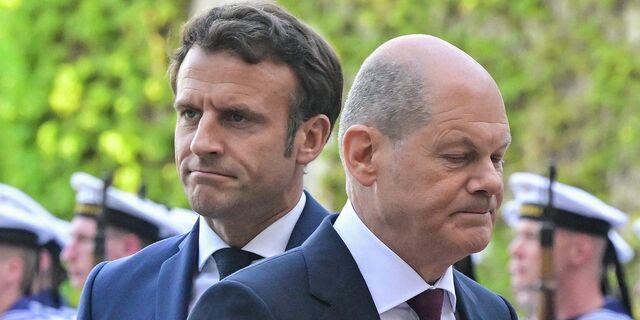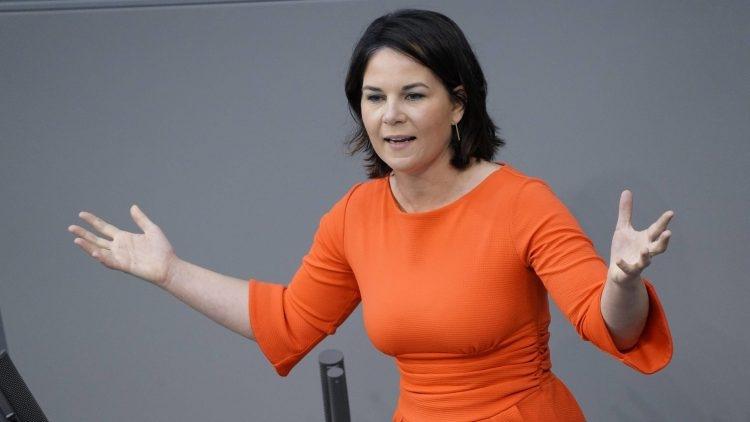Expert ponders on Germany's uncoordinated position and France's toxic policy towards Azerbaijan Macron and Scholz losing ground to their predecessors
In an interview with Caliber.Az, German journalist and political scientist Yevgeniy Kudryats comments on anti-Azerbaijani sentiment among European leaders.
- Why, in your opinion, Azerbaijan faces double standards of the West, in particular, hypocrisy in PACE?
- Officially, there are several reasons for such a decision. From my perspective, it seems that Europe has been deeply affected by Baku's decision to deny PACE (Parliamentary Assembly of the Council of Europe) observers an invitation to the upcoming presidential election. But this is on the surface, but if we look at the essence... In general, there is an impression that the EU treats Azerbaijan quite reservedly, unlike Armenia. As we know, there is a powerful Armenian diaspora in France, which influences the foreign policy of Paris.
I'd like to note that the return of Karabakh to Azerbaijan has not been the focus of much attention in Europe, but it should have been.
- How do you assess Berlin's foreign policy, including regarding Azerbaijan? Don't you think that Germany's foreign policy has lost its flexibility and individuality, especially against the background of the very toxic but turbulent activity of France?
- I think that Berlin's foreign policy towards Azerbaijan has changed for the worse. In any case, there is no sign of any attempt to improve these relations. There is a feeling that the German Ministry of Foreign Affairs is not making an objective assessment of the situation but, on the contrary, is favouring Armenia. Of course, Germany is interested in the signing of a peace treaty between Azerbaijan and Armenia, but some real steps should be taken to achieve this.

As for France, I consider Macron a very weak politician, especially if he is compared to Chirac or Mitterrand, not to mention General de Gaulle. He's trying to take over the leadership from Scholz, but so far he's been unsuccessful. The fact is that France has a large number of domestic problems concerning farmers and migrants, so I would advise the French president to focus more on the domestic agenda. In general, the current European politicians are losing badly to their predecessors. This also applies to Germany, as Olaf Scholz looks ineffectual in comparison to Helmut Kohl.
- I agree with your assessment of Berlin's policy towards Baku. What can be said if the head of German diplomacy Annalena Baerbock herself takes a biased position towards Azerbaijan....
- I have already pointed out above a certain engagement of the current German Foreign Ministry under the leadership of Baerbock. It should be noted that she has no diplomatic experience, so it would not be quite right to make big claims against her. On the other hand, now, when several wars are going on in the world at the same time, it is diplomats who should set an example that it is possible to solve problems on a global scale even at the negotiating table.

- Does Germany have a coordinated policy towards the South Caucasus at all or is it solely French ambitions that rule here?
- I believe that there is no coordinated policy towards the South Caucasus in Germany today, although there should certainly be such a policy. I hope that it will not only be clearly formulated but also gradually formed.
- Right-wing or even pro-Russian parties, such as the Alternative for Germany (AfD), have recently gained popularity in Germany. How do you see their future and the political future of Germany in general? Will it be right-wing, left-wing, centrist?
- Unfortunately, after the large influx of Syrian refugees in 2016, anti-migrant sentiment increased in Germany, which, naturally, was taken advantage of by right-wing parties, particularly Alternative for Germany.
However, a congress of a new party created by Sahra Wagenknecht was recently held. Although the direction of this party is "left-wing", but the program of the party in many respects coincides with the "right-wing". For example, Wagenknecht's supporters are in favour of resuming cooperation with Russia and stopping military aid to Ukraine. Such sentiments in German society cannot but alarm.
However, despite the sharp criticism, the rating of the "AfD" is growing, and the number of members of this party is increasing. Some politicians are in favour of dissolving the party, but such a radical decision may have the opposite effect. As long as the "AfD" does not go beyond the constitutional field, it will not be banned.
As for the Alternative for Germany's ties with Russia, everyone knows about it. Nevertheless, a petition to ban the Alternative for Germany party, launched in August, has garnered more than 800,000 signatures and has been sent to the Bundesrat for consideration.








